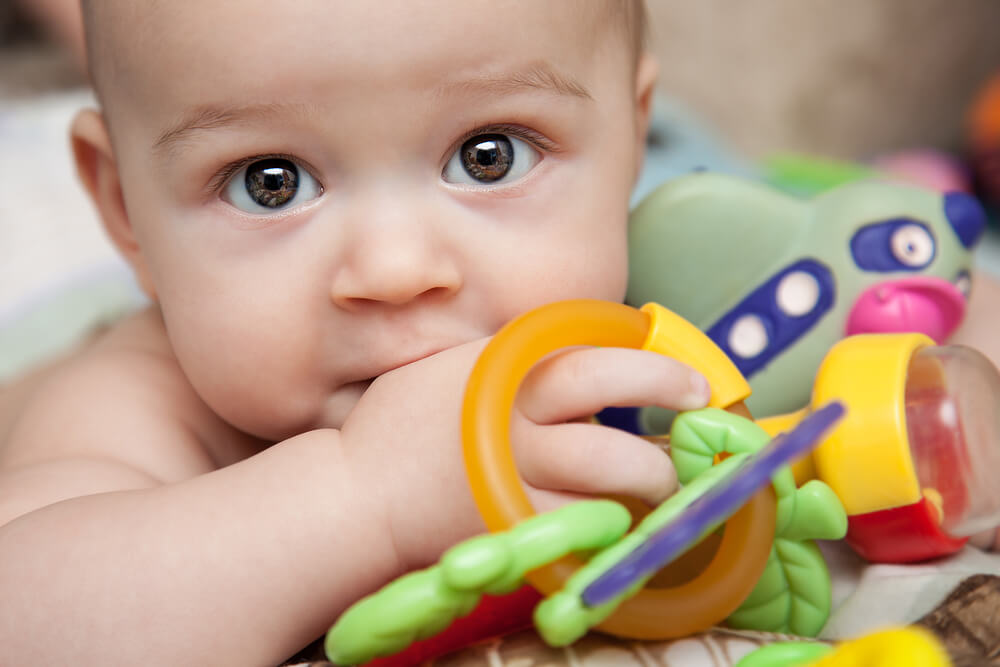If you’ve just become a parent and notice your baby displaying colic symptoms, you might feel worried and anxious. But, how long does colic last? Is there a cause for concern? In this article, we go in-depth about why your baby is crying, common symptoms of colic, and possible colic treatment.
Naturally, you will want to turn to a skilled pediatrician first. If you are looking for the best pediatricians in Miami, we’ve got you covered.
Without further ado, learn about the most prevalent symptoms of colic and the treatment methods you can choose.
What Does Colic Mean?
In short, colic is when a baby cries repeatedly without apparent reasons or causes. Unfortunately, this is a common issue parents have to face, and luckily, it should get better with time.
Usually, colic symptoms are present during the baby’s initial six weeks of life. But, how long does colic last? By the age of three to four months, the symptoms should disappear without medical assistance.
If the baby is crying for no reason, that doesn’t mean that something is wrong with it. Healthy babies may have colic too. Based on statistics, one in four newborns may have colic symptoms.
How long does colic last per day? Usually, colic lasts for over three hours a day. How long does colic last weekly? It happens around three or more days per week. If your baby cries like this for over three weeks, they may have colic.
Moreover, colic starts suddenly, and it is characterized by nonstop loud crying. Parents may feel highly stressed when the baby is crying excessively.
We understand how it can feel. If you are searching for a trained specialist for expert advice, reach out to Dr. Ana Hernandez Puga.

Common Causes of Colic
There are a few reasons why your baby is crying non-stop. Some of these reasons are more common, while others are less likely. Here are the most frequent reasons for colic symptoms:
Your baby is unable to self-soothe.
Some newborns are susceptible to the outside world. Since they cannot calm themselves and the nervous system is immature, they cry. As babies grow, their nervous system matures and becomes better at regulating feelings. Eventually, colic disappears.
Your baby is having issues with adjusting to the surroundings.
Newborns need to get adjusted to loud noises, lights, and other factors outside. Babies have varying personalities, and some are more able to handle specific things (such as noises), while others need time. If your child is finding adapting to the outside world challenging, they may cry as a way to show feelings.
Below are some less common causes of colic:
Your baby might have a milk intolerance or allergy.
Babies might have intolerances to milk, causing colicky abdominal pain. Often, baby’s with milk allergies will also have diarrhea. If you assume that your baby has colicky abdominal pain, consult your pediatrician as soon as possible for further guidance.
Your baby might be sensitive to gas.
Some parents believe that gas is the cause of colicky abdominal pain. However, there is insufficient evidence to support this claim. According to some experts, treating gas has zero effects on colic.
Common Symptoms of Colic
Your baby is crying. How do you know if it’s colic? Are there any additional symptoms you should look for? Below, we’ve compiled a list of the most common colic symptoms. These include:
- Having a flushed (bright red) face
- Passing a lot of gas or burping frequently (the main reason for these symptoms is swallowing air when crying, and it doesn’t cause colic)
- When crying, curling up the legs toward the belly
- Clenching fists when crying
- Having a tight stomach
Considering that these colic symptoms can be signs of other health issues, it’s always best to consult a medical professional for an accurate diagnosis.
How Can You Diagnose Colic?
A medical professional will diagnose your baby for colic. First, the doctor will ask about the baby’s symptoms and general health. Moreover, your child will have to undergo a quick physical exam. Expect questions like:
- How often is your baby crying? How long does the crying last?
- Do you think something is triggering the baby’s crying?
- Do you have a successful comfort method for your baby?
Your doctor may also recommend X-rays, imaging tests, and blood tests. These steps are essential to determine if your child has any underlying healthcare issues.
What is the Best Colic Treatment?
We have some fantastic news: There are plenty of ways to treat colic. First thing first, you will want to soothe your child. For example, you can talk to your baby in a soft voice or sing. Some parents find rocking the baby and giving the baby warm baths effective.
You can also opt for the following colic treatment:
- Ensure the baby is not hungry, but don’t force-feed.
- Change the baby’s position frequently and help them see different sides of the world.
- Give your baby exciting things to look at, such as toys of different textures, colors, sizes, and shapes.
- Get an infant swing.
- Place the baby on your lap and let it lie on their belly. Softly rub its back.
- Place an item in the baby’s room that creates a soothing sound (such as a heartbeat CD, white-noise machine, or fan)
- Use a pacifier.
- Minimize stimulations.
- Cuddle or hold the baby. Don’t ignore their needs.
Moreover, if your child is bottle-fed, switching to a curved bottle may be practical. A curved bottle will allow you to hold the baby upright. You can also reduce the amount of air the child swallows during feeding by burping your baby frequently.
On the flip side, if the baby is bottle-fed but the methods aren’t working, your child’s pediatrician may suggest trying a non-milk-based formula. As for breastfed babies, the pediatrician may recommend avoiding foods that could cause allergies (such as milk, wheat, nuts, or eggs).
Luckily, there are many ways you can soothe a fussy baby. For example, some parents swear by keeping a diary of when the child is awake, sleeping, crying, and eating. This way, you know what to expect, and if you notice any unusual changes, you can talk with a doctor for further help.
Overall, we understand how stressful dealing with a colicky baby is. Remember, it’s completely fine to ask for help. If you have close relatives you trust or a reliable nanny, you can also take some time off. By taking care of your own mental and physical health, you are also helping your baby. Why? Because you will be a better parent when rested.

When Should I Call a Pediatrician?
If you have any concerns and doubts about your baby’s health, reach out to a trusted pediatrician. It’s also a good idea to reach out for professional help if you notice some or all of the following signs:
- Vomiting
- Not drinking as much milk as usual
- Having diarrhea or loose stool
- Becoming irritable when touched or held
- Using added effort to breathe or changing breathing rate
- Having an unusual cry
- Being sluggish or more sleepy than usual
- Having a fever above 100.4°F
If you notice these signs, you should call a healthcare provider. Moreover, if your baby is crying too much, it’s good to reach out for expert advice. Again, your healthcare provider will give you valuable information and proper diagnoses.
Book an Appointment Today
We take great pride in providing high-quality services for our patients. Ready for a check-up? Give us a call today.




